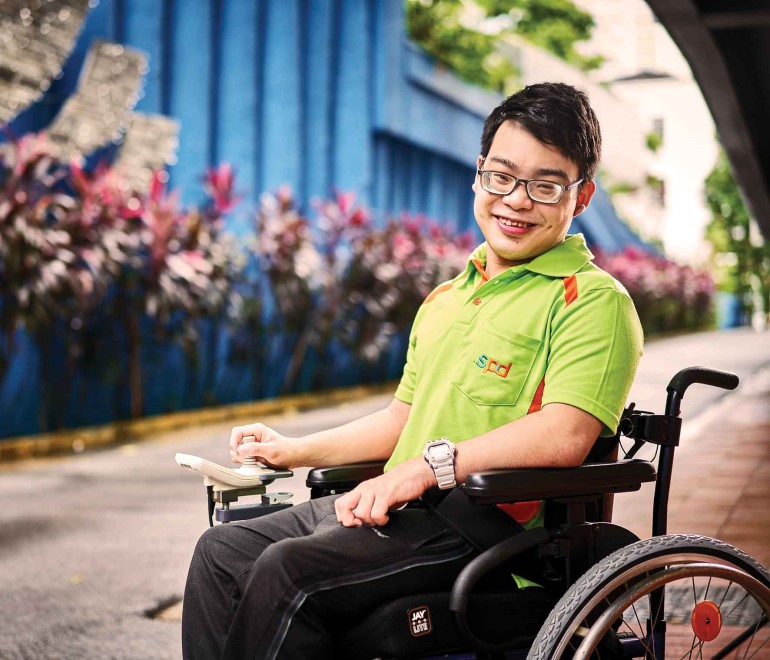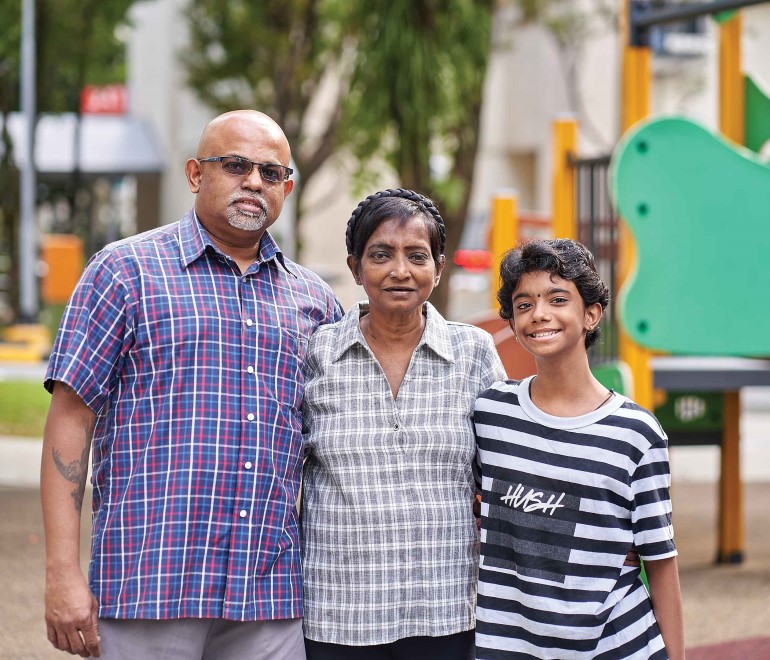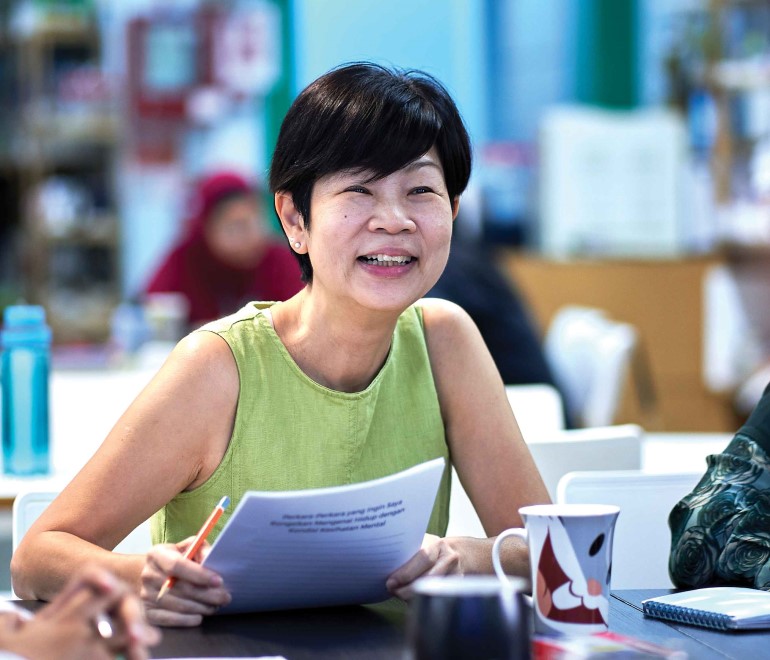
Scheduled Maintenance Notice
You may not be able to access the website and will experience intermittent downtime between 27th to 28th April 2024. We apologise for any inconvenience and appreciate your patience. Should you require any assistance, please email us at ncss_comchest@ncss.gov.sg.
Overview of the Sector Landscape
As our nation progresses, the social service needs have also evolved. In view of this, NCSS conducted the Quality of Life (QOL) Study in 2016 to examine the various communities in need through a person-centred and holistic approach. These are some of the trends and changing needs across the various groups we support at Community Chest.

- PWDs felt moderately INCLUDED IN SOCIETY, indicating room for improvement.1
- The Enabling Masterplan 2030 (EMP2030) aims to increase the employment rate of working-age PWDs from 30% TO 40% BY 2030.2
- Presently, out of 32,000 working-age (15 to 64) PWDs in Singapore, ONLY ONE IN THREE ARE EMPLOYED.3
- By embracing lifelong learning, PWDs can KEEP PACE WITH THE CHANGING ECONOMY and remain independent.2
Sources:
1 Understanding the Quality of Life of Adults with Disabilities (published in 2017).
2 Enabling Masterplan 2030.
3 Unlock the competitive advantage of a disability-inclusive workforce, Heidrick & Struggles.

- Currently, APPROXIMATELY 7,100 STUDENTS with moderate to severe special needs (20% of all students reported with special educational needs (20% of all students reported with special educational needs), attend 24 SPED schools.1
- The remaining 28,400 STUDENTS with mild special educational needs attend mainstream schools, with inclusive classroom practices.1
- The number of Special Educational Needs Officers deployed to schools with higher needs has INCREASED BY 46% SINCE 2017.1 By the 2030s, there will be 28 SPED schools catering to different profiles of students.
- For children and youth with health/developmental conditions, POSITIVE PSYCHOLOGICAL WELL-BEING AND SOCIAL INCLUSION are the most important factors for their quality of life.2
Sources:
1 Parliamentary Replies: Support for students with SEN in mainstream schools who are not found suitable for government-funded SPED or cannot afford private education (8 May 2023).
2 Understanding the Quality of Life of Children and Youth (published in 2022).

- Issues that lower-income individuals and families face are complex and multifaceted and require HOLISTIC AND COMPREHENSIVE SUPPORT, to help them make lasting changes in their lives.1
- Additional support for families in need must be prioritised to help them achieve STABILITY, SELF-RELIANCE, AND SOCIAL MOBILITY so that they can have dignity and aspire to a bright future in Singapore.1
- The KidSTART programme, which has HELPED MORE THAN 6,200 CHILDREN since 2016, will be rolled out nationwide by 2026.2
- Under the Community Link programme, OVER 2,400 VOLUNTEERS have been recruited to better support families with children in rental housing.3
Sources:
1 Budget 2023 Speech.
2 The Straits Times, Priority pre-school enrolment among moves to aid needy families, 28 March 2023.
3 Press Release: Strengthening families to help them achieve stability, self-reliance and social mobility, Early Childhood Development Agency, 2 March 2023.

- ONE IN THREE YOUTH have experienced mental distress, yet only one in 10 parents recognised the symptoms.1
- TWO IN FIVE EMPLOYEES agree that their organisation provides adequate support for their mental well-being.2
- MORE THAN THREE-QUARTERS of Singaporeans with mental disorders do not seek professional treatment.3
- Young people aged 18 to 34 had the HIGHEST PROPORTION OF MENTAL DISORDERS.3
Sources:
1 Youth Epidemiology and Resilience study, Yong Loo Lin School of Medicine at National University of Singapore (NUS Medicine).
2 Attitudes towards Persons with Mental Health Conditions (published in 2022).
3 2016 Singapore Mental Health Study, Institute of Mental Health.

- Issues that lower-income individuals and families face are complex and multifaceted and require HOLISTIC AND COMPREHENSIVE SUPPORT, to help them make lasting changes in their lives.1
- Additional support for vulnerable families must be prioritised to help them achieve STABILITY, SELF-RELIANCE, AND SOCIAL MOBILITY so that they can have dignity and aspire to a bright future in Singapore.1
- The KidSTART programme, which has HELPED MORE THAN 6,200 CHILDREN since 2016, will be rolled out nationwide by 2026.2
- Under the Community Link programme, OVER 2,400 VOLUNTEERS have been recruited to better support families with children in rental housing.3
Sources:
1 Budget 2023 Speech.
2 The Straits Times, Priority pre-school enrolment among moves to aid needy families, 28 March 2023.
3 Press Release: Strengthening families to help them achieve stability, self-reliance and social mobility, Early Childhood Development Agency, 2 March 2023.
Find out more about the impact of your contributions, an overview of the sector landscape or view the full FY2022 Impact Report.
